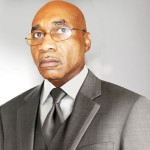
Nigerians are boiling in controversy over their new leader’s approach to appointment of ministers and other governmental positions. President Muhammadu Buhari, almost 100 days in office, so far has appointed mostly indigenes of the North where he hails from to occupy key positions in his regime in a manner that generated a widespread uproar, with critics labelling his actions as “lopsided.”
From many threads that pervade the social media about this issue, one commentator, Rhoda Irodia wrote, “No Southerner is looking for handouts from their Southern representatives, rather we simply want all parts of the whole to be equally represented.” Abubakar Tsav identified as a retired police commissioner echoed a similar sentiment labelling the appointments as unequal. According to Tsav, “Nigeria is too big to have majority of the appointees from one section of the country. We have competent people in every part of Nigeria. For that reason, Buhari should spread the appointments to every part of Nigeria.”
Most of Buhari’s supporters, however saw nothing wrong with his appointments, arguing that choosing a team of his choice is a part his executive mandate. In fact, one Oladimeji Fabiyi, a member APC told the media that Buhari’s appointments are “wonderful and forward looking.” According to Fabiyi, “There is nothing wrong with it because they leader wants to put people who are going to help achieve the promise they made to the people.” To further support the President’s actions, a news blog, Delta Analyst Online reported how a pastor in Benin backed the President’s actions saying, “If Buhari appoints a ‘monkey’ as one of those to assist him to bring the change he has promised, Nigerians should support him”.
But Buhari’s actions should have been expected based of his own comments less than six weeks ago. In a forum in his recent visit to the United State, President Buhari had categorically stated that he would not treat people who did not vote for him equally with those who voted for him. In his words, the President had stated, “Going by election results, constituencies that gave me 97% cannot in all honesty be treated, on some issues, with constituencies that gave me 5%. I think these are political realities.”
So Buhari’s latest disregard of issues of equity and fairness in his allotment of crucial executive positions should not be a surprise, rather a practical execution a proposal he had already put in place. Attorney and legal analyst, Oshiokpekhai Utu-Orbih cited a possible constitutional lapses of Buhari’s appointment as “a total disregard for due process of law and order,” citing Section 14 (3) of the Nigerian 1999 Constitution mandating equity in composition of national government. Utu-Orbih denounced Buhari’s appointments as a scheme running contrary to the spirit and letters of this constitutional provision, and argued that Buhari’s onslaught on the Nigerian people has surely awaken a new consciousness that could inspire a unity of the Southerners as formidable oppositions.
It may be necessary however, to view President Buhari’s disproportionate executive appointment so far from other perspectives. Besides the provisions of the laws, balancing the workforce in a diverse culture is not just an administrative requirement, but an ethical duty. An uneven work structure amorally leaves an unproductive environment of dichotomy and marginalized populace. Constitution or not, it is ethically erroneous in a population diverse with multiple tribes, cultures, and geographical sectors, to ostracize any group from the leadership or the workforce process.
Demographic trends in contemporary governance leaves three interrelated leadership challenges; cross‐cultural complexities, gender disparities, and diversity management. Without doubt, President Buhari, so far, has failed to recognize the inevitability of these concepts in his stewardship, and repercussions may derail his push for a transformation. Various studies are a substantiation of the powerful effects of workforce evenness in decision-making effectiveness. Hence, to progress in his vows to effectively transform his country, President Buhari must embrace a plan that would encompass a judicious composition of the people and relevant demographic arrangements, including; culture, tribes, gender, and geopolitical zones.
In transformation management, especially in a multicultural society, diversity in governmental appointees is a moral mandate not a treat. Using appointment of key public positions to reward campaign supporters, support tribesmen, or punish those considered as “unsupportive” constituents are ethically unjust, spiteful, and may not create the necessary avenues to inspire change.
Furthermore, Buhari’s cohorts must enlighten him on issues of diversity regarding public policy rather than their current self-justifying mentality. A consideration of gender, tribe, age, and geopolitical zones must play a role in structuring the executive workforce to inspire any growth. The electorates or followers who are indeed a core segment of the democratic process are humans who have emotional and psychological needs, and compromising those needs could create resentment and resistance to any transformation agenda. The regime, visibly, is already experiencing such resentments.

Leave a Reply